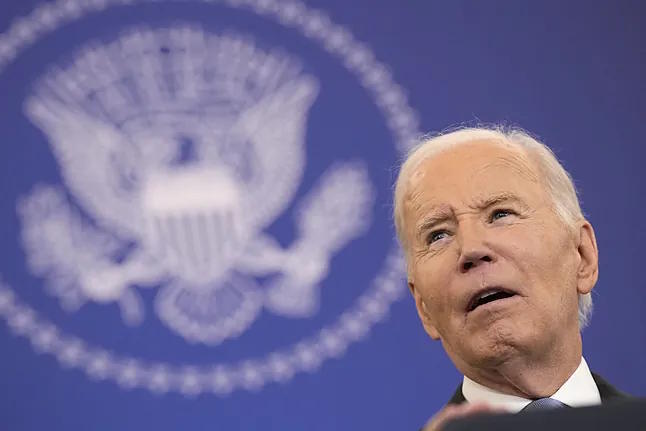Less than a week before leaving the White House, US President Joe Biden has announced the decision to remove Cuba from the list of state sponsors of terrorism in exchange for the release of political prisoners imprisoned for protesting against the regime in July 2021.
The decision, previously reported by the AP news agency, may be overturned if the new administration of Donald Trump, with Cuban-American Marco Rubio as Foreign Affairs head, decides to revoke it. However, according to administration sources, "this issue is one of the topics they have been in contact about" with the Republican leader's transition team. Amnesty International estimates that Cuba imprisoned 671 people for participating in protests four and a half years ago.
In addition to removing Cuba from the list, the White House will suspend a provision of the Helms-Burton Act, Title III, which has allowed Cuban exiles living in the United States to file claims seeking compensation for assets expropriated after the 1959 Cuban Revolution. Washington will also remove a list of Cuban entities from restrictions that prohibit them from engaging in certain financial transactions.
This step, another attempt to ease tensions, represents a deja vu in relations between the two countries and the entire region, as something similar happened a few years ago. In the final days of Trump's first administration, in January 2021, the White House reinstated the designation, which had been removed during President Barack Obama's second term as an attempt at a mild rapprochement. In doing so, the Trump administration argued that Havana's support for Venezuelan leader Nicolás Maduro and its refusal to extradite Colombian rebels. Now, however, the government of Bogotá is taking the opposite stance and has pushed in that direction, pointing out that Cuban leaders have played a positive role in peace negotiations.
Marco Rubio's Senate Hearing
This same Wednesday, Rubio has on his schedule a confirmation hearing before the Senate, the chamber he was part of until a few weeks ago. Undoubtedly, the Cuban issue will arise among the questions. Biden's decision and his team also imply changing a Trump executive order, known as Memorandum 5, which had further restricted certain financial transactions with some Cubans linked to the military and the government, according to a senior administration official cited by AP.
"We believe these actions will be widely welcomed in the region and beyond," a second administration official told national media, adding that other countries supporting the measure include Brazil, Chile, Spain, and Canada, as well as the European Union.
All these concessions should result in Cuba releasing a "significant" number of political prisoners following talks facilitated by the Catholic Church. On Saturday, Biden also awarded the Presidential Medal of Freedom, the country's highest civilian honor, to Pope Francis, making him the first person to receive the additional distinction of "with distinction" from the president.
Last year, Marco Rubio led a change in legislation that would prevent Cuba's removal from the list of state sponsors of terrorism until democratic elections are held in the country, a transitional government is in power, and all political prisoners are released. Senator Ted Cruz, Republican from Texas, stated on Tuesday that he will work to reverse Biden's decision. "Today's decision is unacceptable on its own merits. Terrorism promoted by the Cuban regime has not ceased. I will work with President Trump and my colleagues to immediately reverse and limit the damage caused by the decision," Cruz said.
Since leaving office, Trump has said little about Cuba but has placed hawks in key positions in his administration, including Rubio, and former Inter-American Development Bank director Mauricio Claver-Carone as special envoy for Latin America.
